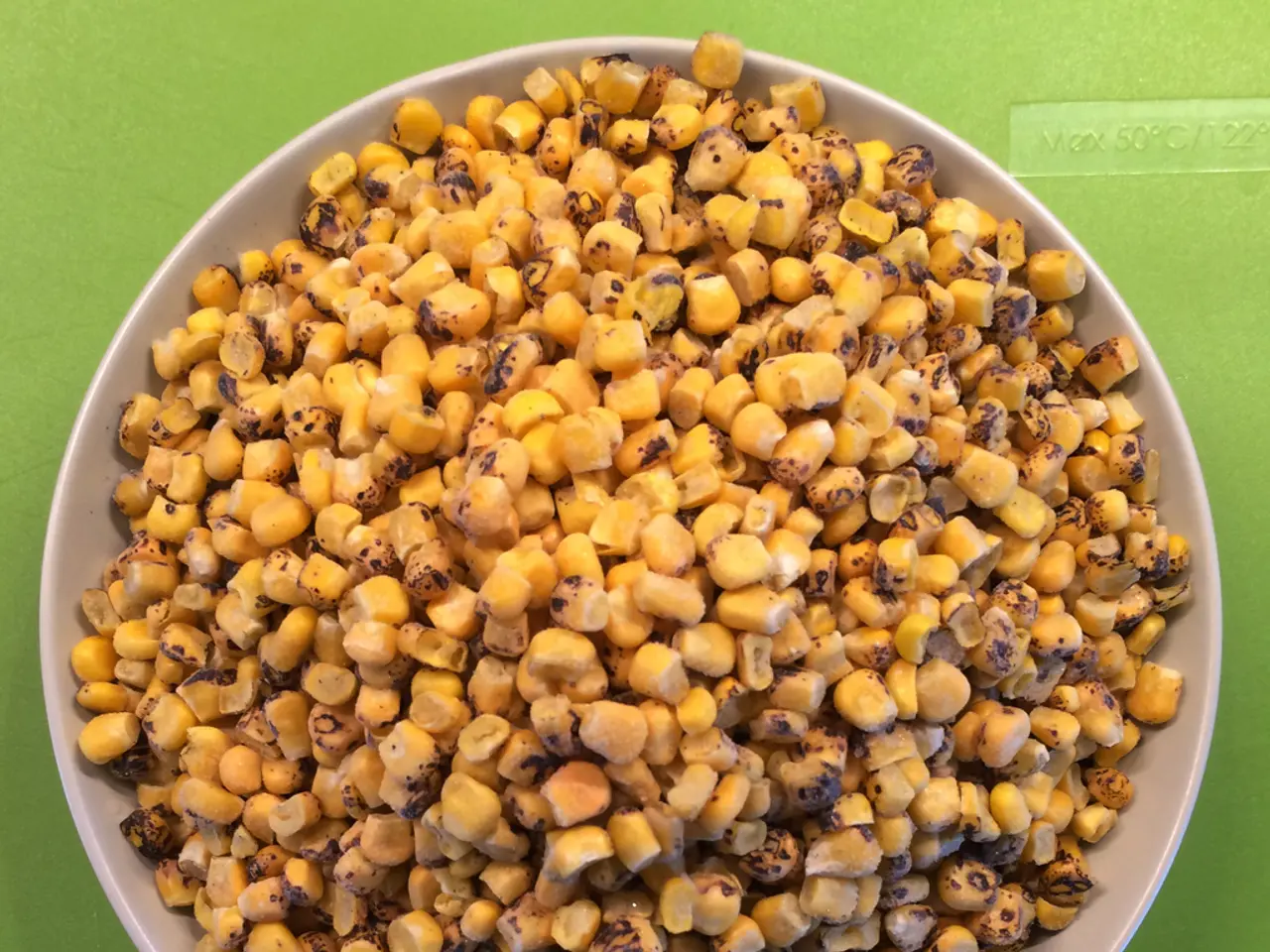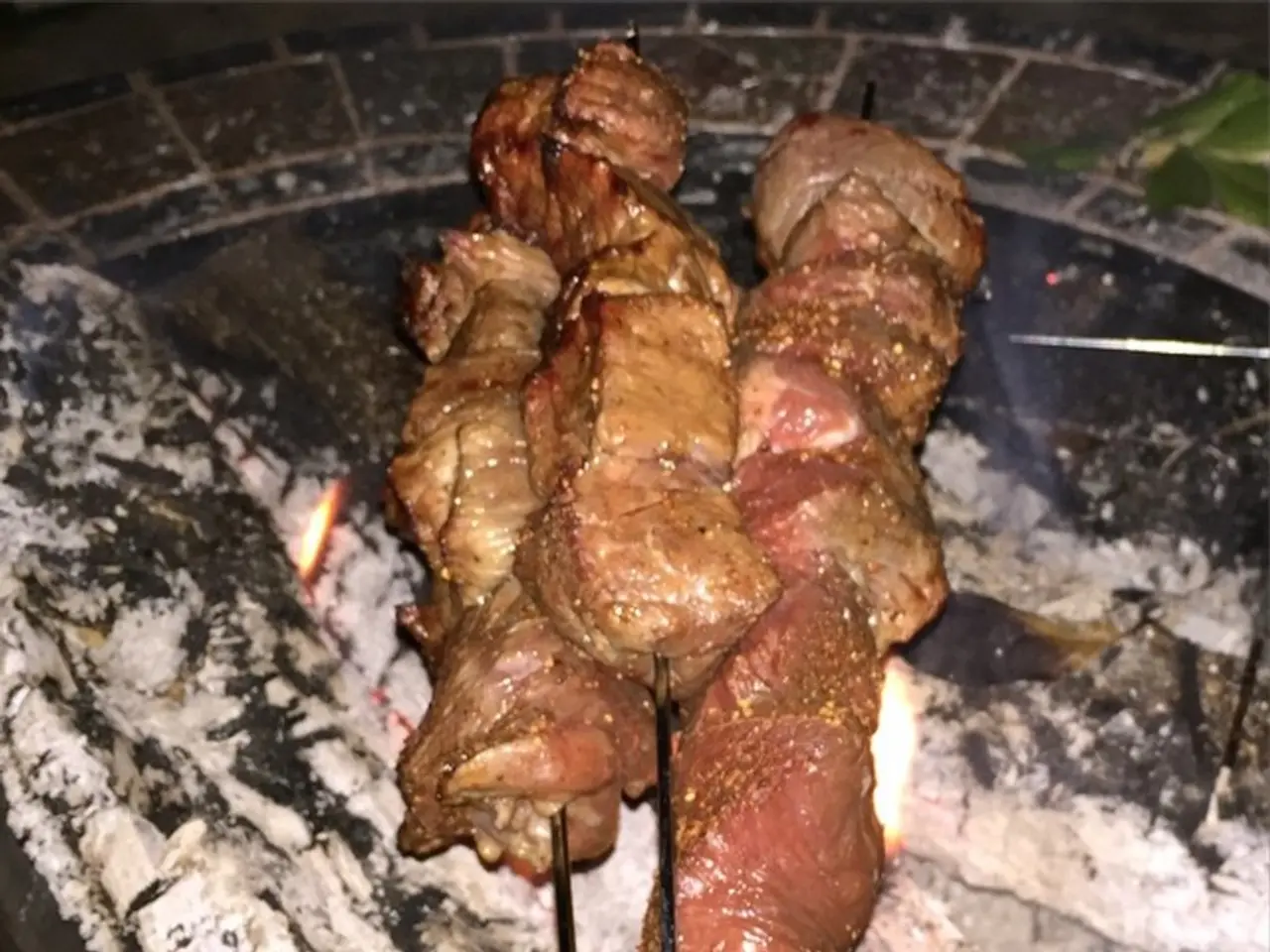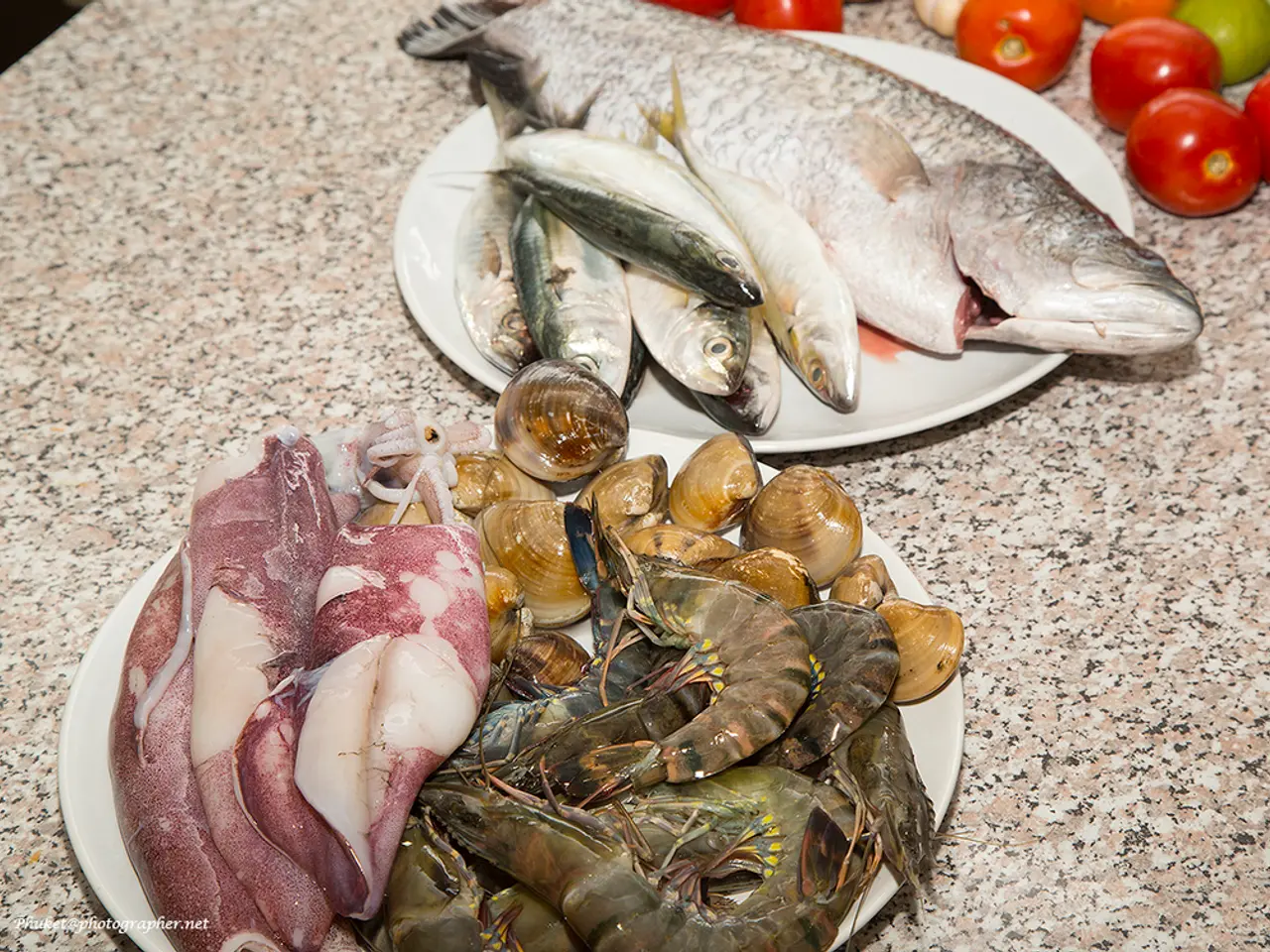Speedy Finger Millet Breakthrough: ICRISAT's Rapid-Ragi A Game-Changer for Crop Research and Food Security
Accelerated Finger Millet Research through ICRISAT's Speed Breeding Method: 'Rapid-Ragi' Protocol
Boosting crop research and food security across Asia and Africa, the International Crops Research Institute for the Semi-Arid Tropics (ICRISAT) introduces an innovative breakthrough - 'Rapid-Ragi'. This speed breeding protocol significantly reduces the typical growing cycle of finger millet from 100-135 days to 68-85 days! More generations can now be cultivated in a year instead of the usual one or two in open fields, marking a monumental leap for global crop research.
With the world's interest in the nutritional benefits of millets growing, this milestones especially resonates since finger millet, the third most important millet after sorghum and pearl millet, plays a pivotal role in public nutrition schemes and school feeding programs. In tandem with ongoing global efforts, such as India's declaration of 2018 as the National Year of Millets and the United Nations' recognition of 2023 as the International Year of Millets, this development embraces a promising future for the crop.
Dr Himanshu Pathak, ICRISAT's Director General, shares that Rapid-Ragi marks the institute's third open-access speed breeding protocol, following similar advancements in chickpea and pigeonpea. He labels it as a "milestone for the global scientific community", foreseeing its profound impact on accelerating the breeding of high-yielding, climate-resilient, and nutrient-rich crop varieties.
While the protocols for chickpea and pigeonpea require complex light conditions, the finger millet version predominantly functions with natural light, necessitating only minimal artificial support. Simplicity and affordability are nailed right on the head with this development.
Dr Sean Mayes, Global Research Program Director for Accelerated Crop Improvement at ICRISAT, explains that the team's focus went beyond just speeding up the growth cycle to ensuring the method remains practical and scalable.
Notably, this development promises substantial benefits for neglected and underutilized crops (NUCs) which often suffer from a lack of research attention due to the global focus on major cereals like rice, wheat, and maize.
Lead scientist, Dr Sobhan Sajja, is on record emphasizing that Rapid-Ragi is the first-ever speed breeding protocol developed for small millets. Future plans involve adapting this model to other small millets such as foxtail, proso, barnyard, little, and kodo millets.
With its open-access availability, Rapid-Ragi equips researchers worldwide with a powerful tool to build more resilient, nutritious, and sustainable food systems. Encouraging results have already surfaced from early trials with other millets employing this protocol.
References:
- https://www.nature.com/articles/s41467-023-37456-8
- https://www.sciencedirect.com/science/article/pii/S2211912423000605
- https://www.nature.com/articles/nbt.4012
- https://www.jstor.org/stable/41670545
[First published on: 20 Jun 2025, 09:44 IST]
Enrichment Data:
- *Accelerated Breeding: Rapid-Ragi quickens the genetic gain and cultivar development as it slashes the finger millet's growing cycle by 32–50%.
- *Cost-effectiveness: The protocol cleverly tweaks agronomic and physiological factors to keep costs manageable, like photoperiod, temperature, humidity, high-density planting, nutrient sprays, restricted irrigation, and harvesting at physiological maturity.
- *Boosted Research Efficiency: Rapid-Ragi supports rapid development of recombinant inbred lines, facilitates high-throughput phenotyping for resistance to biotic and abiotic stresses, and enables genotyping for early generation selections. This significantly increases research throughput and precision.
- *Non-GMO Approach: The non-GMO method uses conventional breeding accelerated under controlled environmental conditions, making it natural and acceptable to farmers and consumers.
- *Nutritional and Agronomic Relevance: Rich in calcium, iron, and dietary fiber, finger millet is invaluable for combating malnutrition, particularly in vulnerable populations like children and mothers.
- *Climate-resilient and nutrient-rich varieties: The protocol empowers scientists to rapidly breed finger millet varieties that are drought-tolerant, pest-resistant, and early-maturing, traits critical under rapidly changing climate conditions in semi-arid tropics of Asia and Africa.
- *Improved Seed Availability: Rapid-Ragi drastically decreases breeding time from 5-7 years to 2-3 years, ensuring quick delivery of improved seeds to farmers for better crop production management and increased yields.
- *Millet Research and Promotion Boost: Swelling global attention on the nutritional merits of millets positions Rapid-Ragi as a catalyst to boost millet research, aiding programs in Asia and Africa to enhance food security and nutrition through sustainable crop improvements.
- *Policy and Nutrition Initiatives Support: The innovation aligns with global efforts such as India’s National Year of Millets (2018) and the UN’s International Year of Millets (2023), promoting millets as climate-resilient, nutritious crops essential for food security and sustainable agriculture.
In summary, ICRISAT’s Rapid-Ragi speed breeding protocol boasts enhanced cost-effectiveness and notable benefits, including accelerated breeding cycles, boosted research efficiency, nutritional and agronomic relevance, climate-resilient and nutrient-rich varieties, improved seed availability, millet research and promotion boost, and the support of global policy and nutrition initiatives. This revolutionary advancement drastically shortens breeding cycles, enabling rapid development of improved finger millet varieties, contributing significantly to food and nutrition security in millet-growing regions of Asia and Africa under rising climate change and population pressure.
- The speed breeding protocol for finger millet, Rapid-Ragi, not only reduces the typical growing cycle from 100-135 days to 68-85 days but also accelerates the genetic gain and cultivar development, making it a significant breakthrough in the realm of environmental-science, health-and-wellness, and food-and-drink.
- By employing traditional, cost-effective approaches that tweak agronomic and physiological factors like photoperiod, temperature, humidity, high-density planting, nutrient sprays, restricted irrigation, and harvesting at physiological maturity, Rapid-Ragi aims to combat malnutrition in vulnerable populations such as children and mothers, making it a promising step forward in the field of nutritional research.
- With the potential to breed climate-resilient and nutrient-rich varieties of finger millet that are drought-tolerant, pest-resistant, and early-maturing, Rapid-Ragi aligns with global policy and nutrition initiatives, such as India’s National Year of Millets (2018) and the UN’s International Year of Millets (2023), furthering the aims of food and nutrition security, fitness-and-exercise, and lifestyle, particularly in the semi-arid tropics of Asia and Africa.







